
MAJOR CORPORATE PARTNER DINNER
A CELEBRATION OF DIAMOND, PLATINUM, GOLD AND SILVER CORPORATE PARTNERS AT THE SOFITEL ADELAIDE











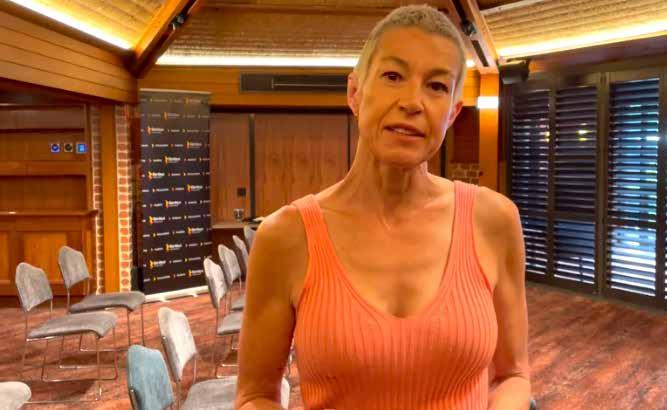


Scott
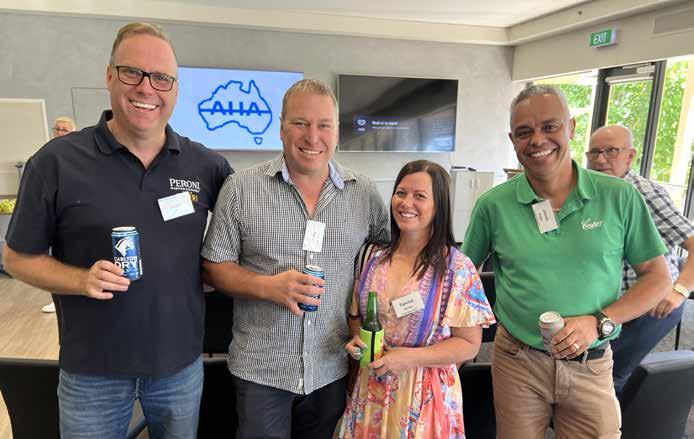


Do


A CELEBRATION OF DIAMOND, PLATINUM, GOLD AND SILVER CORPORATE PARTNERS AT THE SOFITEL ADELAIDE














Scott



Do
In recent weeks, there has been a deluge of media speculation about the viability of the hospitality industry.
Any industry participant will easily identify how much harder business has become in recent months, and I will focus on that shortly. However, much of the discussion has become alarmist, potentially spooking valuers, lenders and investors.
A recent headline claiming ‘Why the hospitality industry is doomed’ is frankly unhelpful, alarmist and inaccurate.
I will leave commentary around cafés, restaurants and other industry segments to others, but the hotel and pub game has proven to be resilient since Colonel Light landed in South Australia in 1836 and went searching for his first schooner of West End.
There is a very simple reason the hotel and pub game in South Australia has survived two pandemics, two World Wars, a depression, numerous economic downturns, changes in consumer tastes and an array of threatening Government policies.
We have always offered a quality product keenly sought by South
Australians. Our industry continues to be filled by energetic business owners who invest in their product, their staff and most importantly, their communities. Being the heartbeat of any community counts when the going gets tough. With so many of our pubs being family businesses, authenticity counts.
South Australian hotels are universally regarded as the nation’s finest. Our members’ investment has produced outstanding venues people want to attend.
Mercifully, for these reasons, economic casualties in the pub world have been scarce in recent times as our industry’s resilience comes through. But not for a moment does that ignore the fact we are navigating troubled waters.
We have had the opportunity to discuss in recent times with the State Treasurer Stephen Mulligan why this is such a difficult time for hospitality.
Members don’t need to be reminded of the issues we highlighted with the Treasurer. They live it on a daily basis.
The two key issues that have caused the tightening of the economy have been interest rate

rises and a sharp increase in cost of living. And whilst they are largely viewed within the prism of household spending, they have bitten business sharply.
Debt in our sector rose 15% during Covid. Low interest rates eased that pressure. However, 13 consecutive interest rate rises have put pressure on any hotel with debt, but particularly those that came out of Covid in a vulnerable financial position.
Business costs have risen across the board but rises in insurance and the constant spiralling power costs have bitten hardest. Power costs impact our sector more than most, given our heavily reliance on refrigeration and air conditioning for extended trading periods.
We did highlight to the Treasurer our frustration with the bureaucracy. They were amongst the 76% of the population whose income was not negatively affected by Covid. Seemingly, the moment Nicola Spurrier disappeared from our daily news cycle, that signalled the green light for the bureaucratic class to implement their own pent up demand, and impose unrealistic impositions on an industry deserving of a peaceful

post-Covid reset. We have seen this most noticeably from the Office of Liquor and Gaming, along with Revenue SA.
Revenue SA’s new approach to Land Tax and aggregation has already hurt many of our members. Now they have turned their attention to payroll tax. We continue to stay in regular contact with the Treasurer as many of our accommodation members and now general members have been caught by a differing Revenue SA interpretation. It is important to note, there has been no legislative change to payroll tax.
And adding salt to the wound is the luxury so many of our Federal and State public servants have of working from home - a major issue for our sector.
Wages and superannuation have increased quickly. Some would say these increases were required given the current inflation rate. Maybe. But it is our members who are
“the hotel and pub game has proven to be resilient since Colonel Light landed in South Australia in 1836 and went searching for his first schooner of West End.”
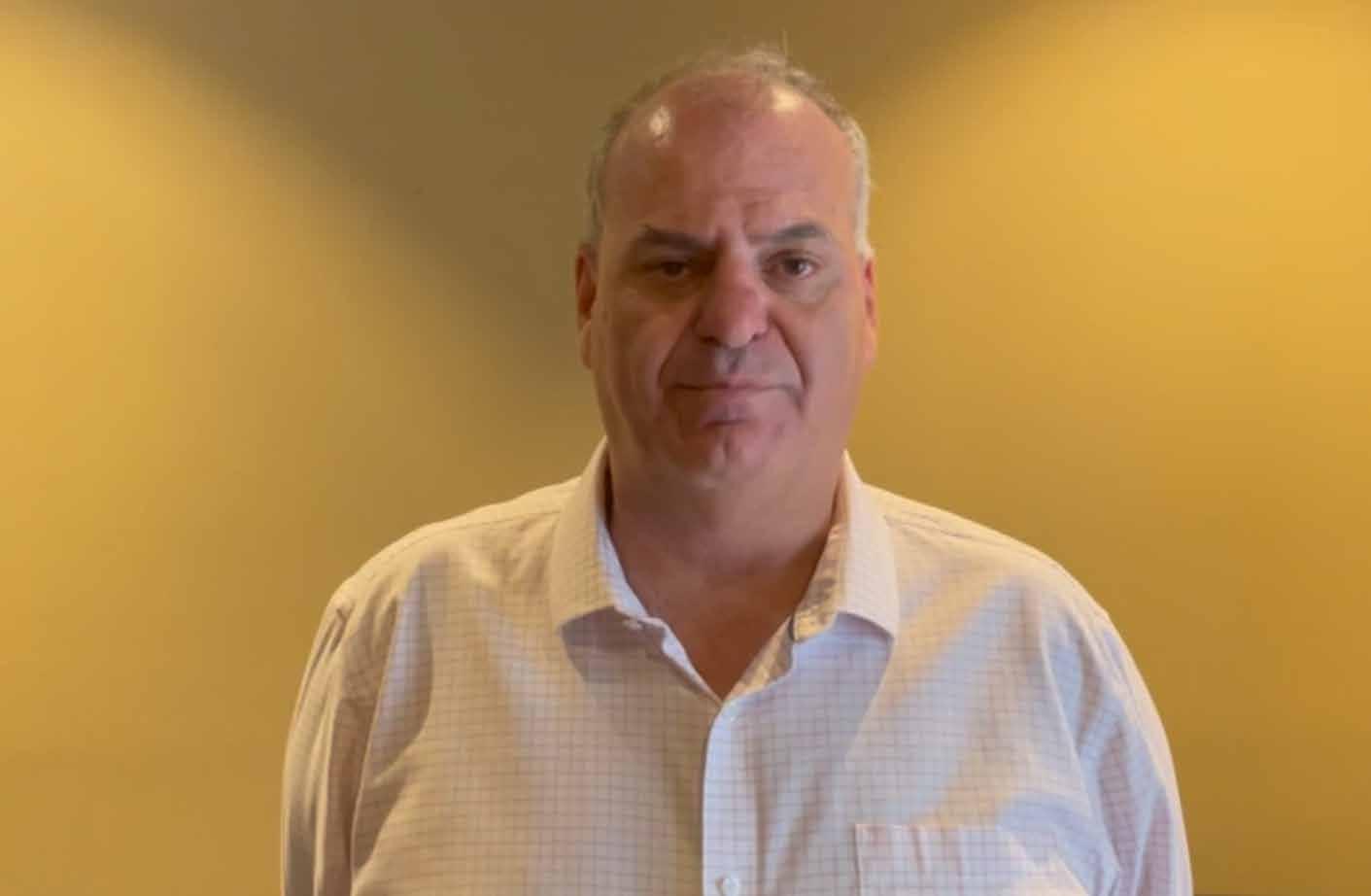

“South Australia lost 4,798 people … whilst Queensland gained a total of 166,791 over the same period.”
required to pay for this. Wages were already moving in our sector given the labour shortage.
Later in this column I will look at population, but South Australia’s modest population growth remain an impediment. It means one pub’s growth too often comes at the expense of another. We are simply moving the pie rather than growing it. The Fringe is a classic example. An iconic South Australian festival that we should all be proud of. But whilst it is a bonanza for some pubs, it coincides with the quietest trading period for others.
One topic we raised but didn’t elaborate on with the Treasurer is alcohol excise, given it is a Federal tax. However, our work in Canberra continues, as this sixmonthly imposition headlines the increased cost base for many of our members.
The issues we are experiencing at the moment are real and many of our members do need support. All of our members are entitled to see the current public service raids on our business ease off. This is because our members make a $4.5billon annual contribution to the State’s economy, employs 26,250
South Australians and contribute a staggering 10.7% of this State’s total tax revenue
I am just old enough to remember being in primary school when South Australia was the third most populous State and Adelaide was the nation’s third biggest city. Today, as we lag behind every other mainland State in terms of population, sadly that is a distant memory. Our share of the national population has fallen to 6.95%
Global Adelaide is an organisation formed to advocate for population growth within our capital. The AHAISA firmly backs their ambitions.
We need population to grow our economy and provide us with a sustainable workforce. A comparison with Queensland is alarming. Data provided by Global Adelaide reveals that in the last financial year, 18,039 skilled visas were granted in Queensland, compared to 16,177 in South Australia.
More worrying, Queensland received 6,888 family visas compared to South Australia’s 2,471. The
population gap widens. And it will continue to widen after the 2023 immigration review saw SA’s share of skilled regional visas reduced by 82%.
Let’s fast forward to the projections for the next ten years.
In Adelaide we often hear about the brain drain, it’s become a bit of an obsession. Looking at ABS data on the movement of people internally - which is knows as Net Interstate Migration (NIM) - the June 2023 ABS data and other annual data as of the end of June over the past 5 years, it can be seen that significantly more people move to Queensland than SA through NIM. 490 more people left SA than arrived and that over the five-year period from June 2019 to June 2023, South Australia lost 4,798 people through NIM, whilst Queensland gained a total of 166,791 over the same period.
Look at predicted growth for Qld and SA, including Brisbane and Adelaide. Qld is anticipated to grow from 2,695,300 at the start of 2022-23 to 3,137,900 (growth of 442,600). By comparison, regional SA will grow from 402,900 to 418,900 (growth of 16,000). Regional Queensland projected population alone at the end of 2033-34 (3,137,900) will be significantly greater, almost double that of Adelaide’s projected population (1,628,600).
Both Premier Peter Malinauskas and his predecessor Steven Marshall have been pro -population growth. However, we are suffering from decades of planning failure. Until this is reversed, we will continue to be unable to fulfill our State’s full economic potential.
AHAISA joins Global Adelaide in its ambitions to see the long-standing population trajectory reversed.
David Basheer, AHA|SA PresidentOne of the reasons the AHA|SA has succeeded over its 156-year history is our willingness to evolve.
In 2024, the demands on the association are greater than ever before.
To succeed in the years ahead, we need to ensure we have the organisational capacity – and flexibility – to achieve our goals.
Recently I announced changes to our executive leadership team and key staff positions. We are making these decisions from a position of strength, to capitalise on future opportunities.
Under our updated structure, Owen Webb has been elevated to the role of Deputy Chief Executive Officer.
Owen is a high calibre operator. He showed his enormous capabilities during the response to Covid. He absorbed unrelenting pressure and won the respect of members, colleagues and our external stakeholders.
Owen will continue to be a point of contact for workplace relations, licensing and gaming matters, however his role will now broaden to focus on advocating for the
interests of members across all areas of industry.
Natarsha Stevenson’s position has recently changed to the new role of Manager – Policy & Industry Affairs. Natarsha has demonstrated the rare ability to manage complex issues across many fronts and she has been an integral part of both the AHA|SA and Gaming Care over the last three years. In this new role, she will play to these strengths for the benefit of members. Importantly, she will continue to provide expert advice on policy development for the industry and play a critical role in developing our submissions to government in a variety of areas including grant funding, legislative changes and budget submission.
As many of you will know by now, Sarah Legoe has rejoined the AHA|SA. This is a real coup, as she returns with the experience of working as a commercial lawyer in private practice. Sarah’s title is Senior Advisor – Workplace Relations, Liquor Licensing and Gaming and draws on her decadelong time with the Association as a manager and advocate. Sarah can assist members with advice

and advocacy on matters across workplace relations, liquor licensing and gaming.
With his incredible blend of skills and experience, Didier Vollerin’s role will broaden for 2024. In addition to providing advice on liquor, gaming and workplace relations, Didier will also be available to undertake educational compliance and auditing of venues in his role as Liquor Licensing and Gaming Advisor. He can come out to your venue and assist in a range of areas including Anti Money Laundering compliance, liquor licensing and gaming signage, food safety, liquor management plans and assistance with the LGO portal, CBS website, BOEN and RP approvals.
As business owners and managers, you will know the importance of having an outstanding team. I am blessed to work with very talented people who ‘live and breathe pubs’.
Like a winning sports team, we are blessed with incredible depth of talent.
We’re taking the long view with these changes and positioning
ourselves for the next phase in the AHA’s evolution, whatever that may bring.
Input from the AHA|SA Council has been of enormous value. Their backing and the continued longterm unity of members is a hallmark of the Association’s success. Those who seeks to pick a fight with the AHA|SA know that we have incredible strength in this unity. When I started, I promised to build on the good work of the outgoing CEO, Ian Horne.
The AHA|SA will continue to adapt and change to drive the interests of the hotel industry as a whole, and to better assist individual members to succeed and grow.

 Anna Moeller, AHA|SA CEO
Anna Moeller, AHA|SA CEO



The AHA|SA congratulates Dini Soulio, the former Liquor and Gambling Commissioner, who has been appointed to the position of Chief Executive of Super SA.
While we didn’t always get everything we wanted, Dini always was prepared to listen to our point of view and to work with industry, rather than against it.
We wish him every success in his new role and look forward to working with his successor.
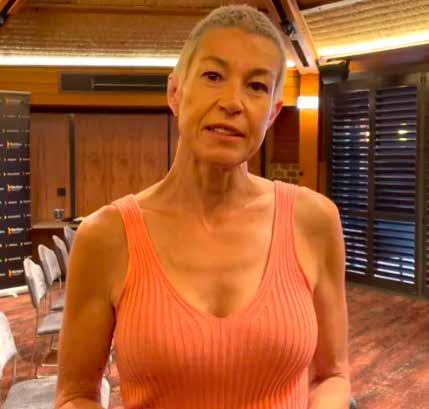


you can thank the bourbon barrels for that!




Over 100 attended the annual Major Corporate Partner Appreciation Dinner in Garcon Bleu Restaurant at the Sofitel on Wednesday 21 February.
The dinner recognises the support of Diamond, Platinum, Gold and Silver Corporate Partners, who were invited to join the AHA|SA Council and major hotel group owners and Accommodation Division representatives.
On the night SA Lotteries was presented with a plaque as a new Gold Corporate Partner.
It was a stunning dinner in a beautiful setting! Thank to our hosts Scott Egar and the team at the Sofitel for a fabulous night.






























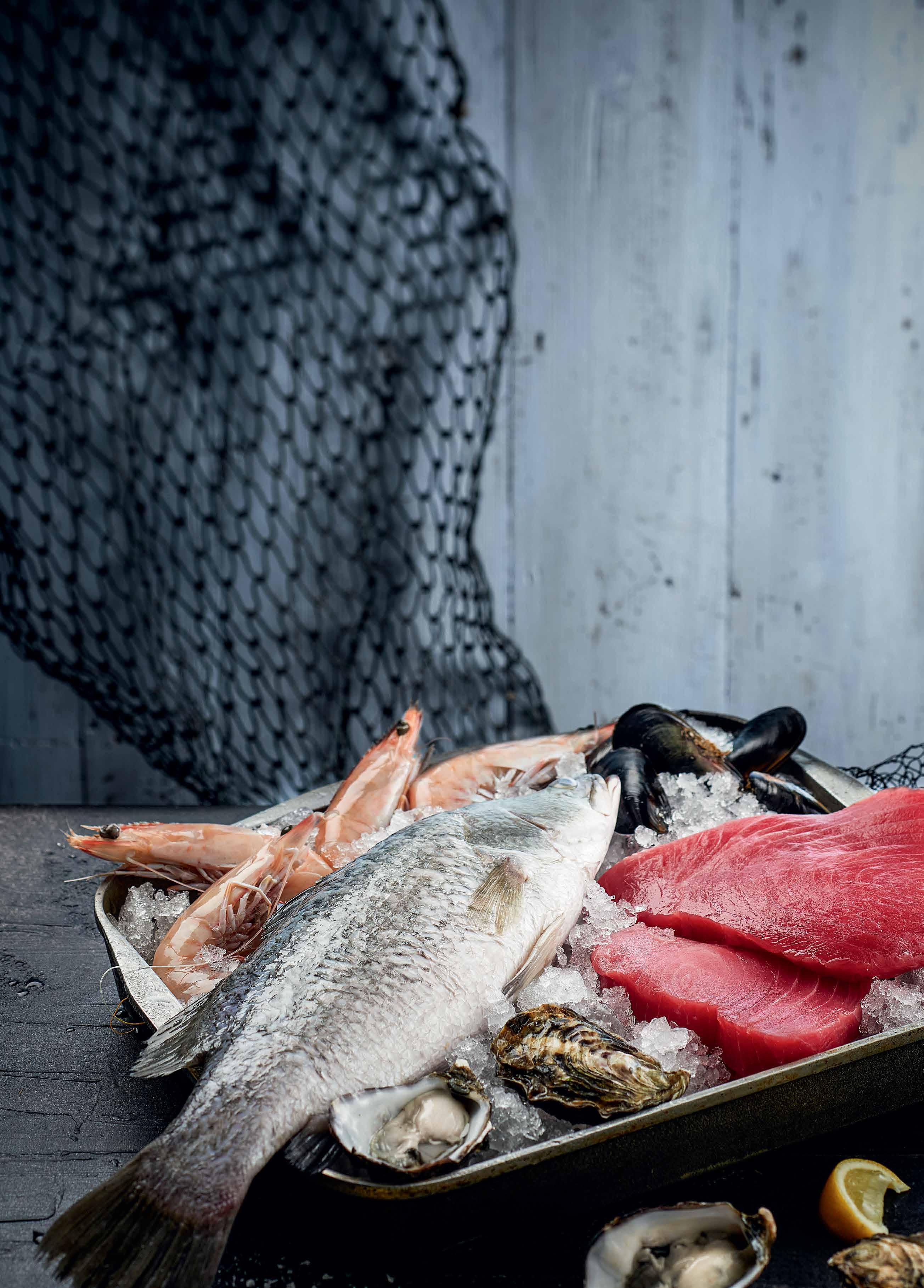






The AHA|SA hosted thirty SA hoteliers and Corporate Partners on our inaugural Study Tour to Melbourne.The group visited a range of venues across Melbourne CBD, Fitzroy, Brunswick, Prahan and St Kilda. The venues showcased innovation, highlighting food, beverage, and design trends. The group was indulged in the venues' hospitality, with many taking the time to provide greater insights into their venue and operations. A great trip with a wonderful group of SA hoteliers! Watch this space for the next Study Tour.
The group then had the option of attending the Australian Guineas at Flemington as guests of Tabcorp. A brilliant end to the Melbourne experience. Big thanks to key partners TAB, The Lottery Corporation and Bepoz for hosting parts of the tour.











““Great tour with plenty of inspirational ideas to follow, all had with a cold beer in hand. Each day was packed with exceptional F&B venues that are pushing the envelope when it comes to innovation and style. Some fantastic insights were given by the management and teams running each venue and hurdles they had to overcome. This experience was one my team and I thoroughly enjoyed and looking forward to the next study tour.
Andrew Cain, Group Operations Manager – SA Pub Group





Our team recently joined the Australian Hotels Association - SA Branch's first-ever Study Tour to Melbourne! We had the pleasure of exploring the vibrant hospitality scene in Melbourne, delving into innovative concepts and cuttingedge designs. It was a fantastic opportunity to witness all the amazing hospitality innovations within Melbourne.

Hello all and welcome to the March edition of Scott’s Spot for 2024.
We have had two bumper turnouts in February to kick off the regional meetings in 2024.
The Eyre Hotel started proceedings in mid-February followed by the Loxton Hotel Both were well supported events, so a massive thanks to our hosts, members and corporate partners for their attendance.
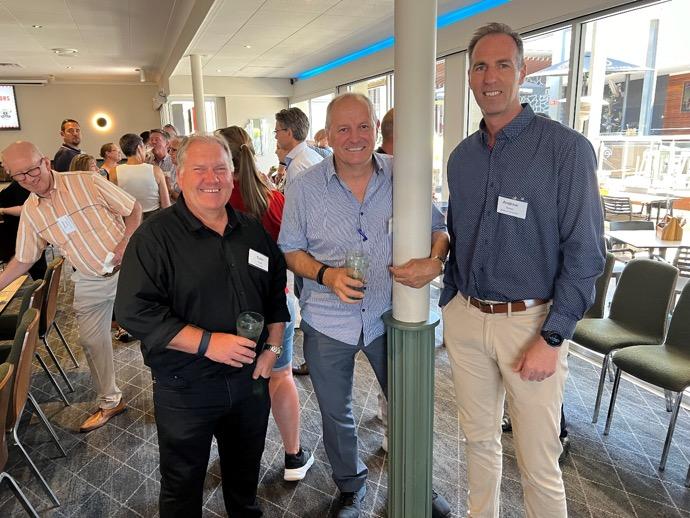
PLEASE

SO LONG, FAREWELL, AUF WIEDERSEHEN GOODBYE.
STEVE MARKHAM’S FAREWELL ADDRESS.
It was nice to hear Steve from Max make his final address. He has been entrenched within the industry for over 30 years and never missed an opportunity to attend the regionals. Steve is looking forward to settling into Port Lincoln with Leonie but it won’t be the last time we all see his smiling face.


If you have any entertaining stories and photos to share, please email them to svaughan@ahasa.asn.au

















That’s all for this edition. As always, any funny or even weird stories and or photos, please email to svaughan@ahasa.asn.au
The AHA|SA has kicked off the year with two extremely well attended meetings held at the Eyre Hotel and Loxton Hotel in February. Massive thanks to both these venues for hosting, all members within these regions who attended and our wonderful corporate partners.























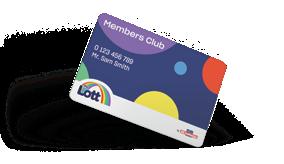





The dining landscape in Australia is constantly evolving, driven by changing consumer preferences. Here are some of the ongoing trends to watch.
Interactive restaurant concepts not only engage the senses but also create a sense of community and connection among diners. Whether it's through interactive tasting menus, live cooking demonstrations, or themed dining events, hotel restaurants will strive to create experiences that leave a lasting impression.
Smaller hotels are likely to take the lead of larger hotels and increasingly partner with renowned chefs to bring exciting culinary concepts to their guests. A consultant chef or guest chef is not a new thing. But in 2024, they have become foodie stars with large social media followings and can potentially draw large numbers into your dining room.
By staying ahead of the curve and embracing emerging trends, Australian restaurants can continue to thrive and provide memorable dining experiences for years to come.
On average, every tenth person that walks into your venue is a vegetarian (12% of the Australian population).
That’s very high. By comparison, the UK and USA are about 4%.
The shift towards plant-based and vegan options is not only driven by changing dietary preferences, but also by environmental concerns. As consumers become more aware of the impact of animal agriculture on the environment, they are actively seeking out sustainable and ethical dining options.
Depending on your local demographic, hotels that embrace this trend will be able to stay ahead of the competition. So, prioritise sustainability and ethical sourcing whenever you can.
Pro Tip: Tell your story. Or tell the stories of your suppliers. Why have you expanded your vegetarian or environmentally sustainable menu options? Are you sourcing local and seasonal ingredients, reducing food waste, and implementing energy-efficient technologies?


Have you partnered with local farmers and suppliers to ensure the traceability and quality of ingredients?
Telling stories like these add authenticity to the dining experience. In a world of tweets and micro marketing, people appreciate stories that resonate with their beliefs.
On the other hand, tweets and reviews are important too, so read on.
Pro Tip: Make your dishes look good.
Social media has become an influential platform for shaping restaurant trends, with Instagram in particular driving the popularity of visually appealing dishes and unique dining experiences.
This will only grow in the years ahead.
How can you create Instagram-worthy moments for your customers?
From photogenic cocktails to visually stunning desserts, smart venues will create dishes that are not only delicious but also highly shareable. This trend extends to restaurant interiors and décor.


“Google Reviews is the number one to dominate . Just ask your staff and they will confirm this.”
From the moment someone makes a reservation to the time they pay their bill, technology plays a pivotal role in enhancing every aspect of their dining experience.
In addition to improving convenience and efficiency, technology also has the potential to create more personalised dining experiences.
With the help of artificial intelligence (AI), restaurants can analyse customer data to better understand their preferences and tailor their offerings accordingly.
For example, if a customer has a food allergy or dietary restriction, the restaurant can ensure that their menu options are suitable and provide personalised recommendations.





Testimonials can be faked – and so can reviews. But when you have 1,000 reviews saying good or bad things about your food and service, it’s hard for isolated trolls to make their attack hit home.
Google Reviews is the number one to dominate. Just ask your staff and they will confirm this.
TripAdvisor is popular, especially with tourists. Instagram is another “go to” site that people of all ages will look at to make an informed decision about where to dine.
Hotel restaurants that actively engage with customers on social media and respond to feedback will be more likely to succeed.
Nothing new here. Fusion will continue to be a hallmark of Australian cuisine.
Australia's multicultural society has influenced our food choices for decades and in 2024, we can expect to see a continued blending of culinary traditions.
Experiment and see what works for your catchment area.









The first Small Business Fundamentals workshop in the Financial Management stream was held at the Arkaba Hotel in March. Funded by the State Government, the free event was presented by Rick Basheer, a Partner at Bentleys. The successful two-hour session covered a range of financial topics, including budgeting, the reporting process, key financial drivers and how to improve them. The series will run until June 2025 in metropolitan and regional South Australia.
Contact the AHA|SA for further information or visit the AHA|SA website.

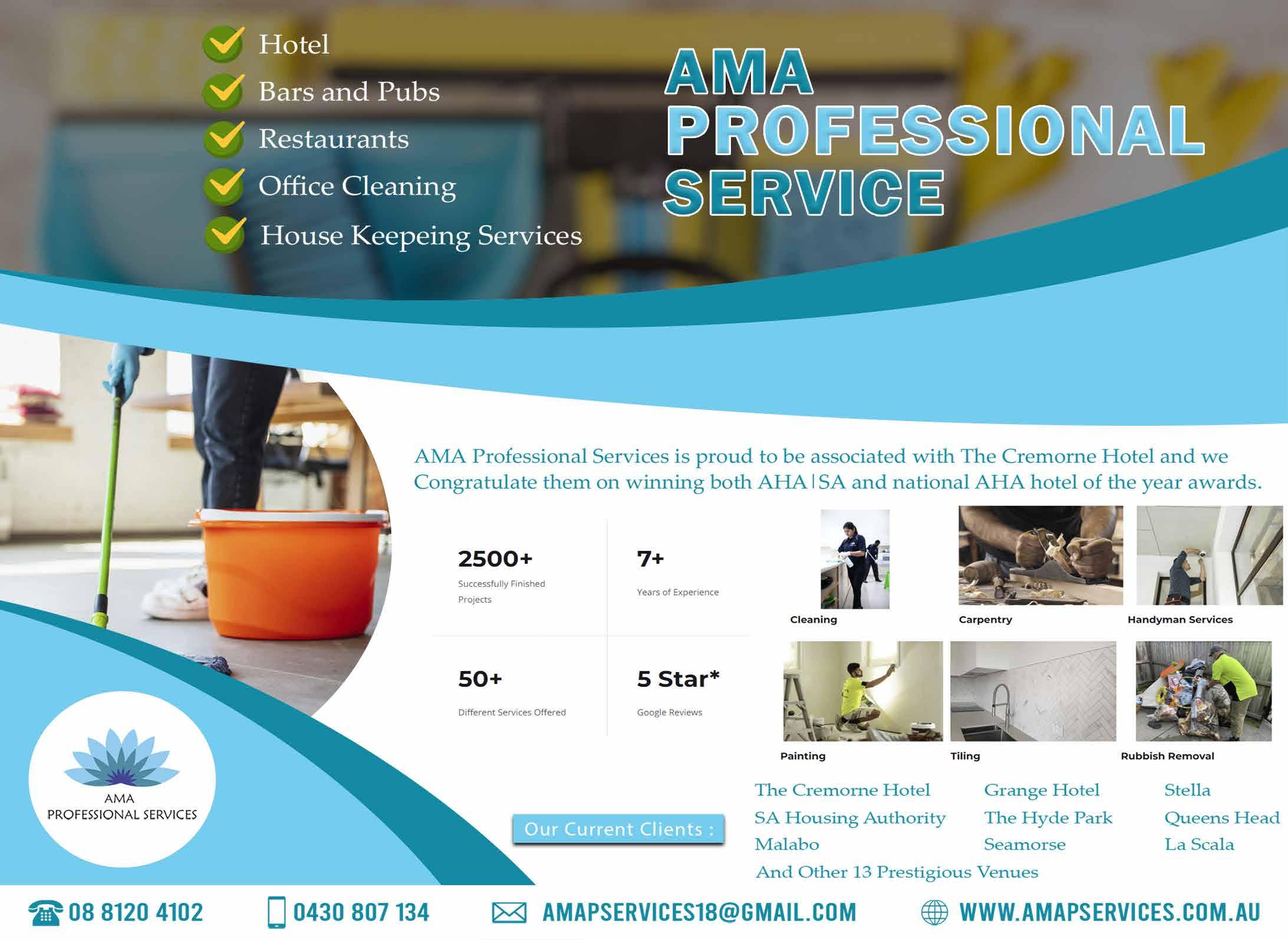

Since forming government in 2022, the Albanese Government has made a significant number of changes to the Fair Work Act 2009 (FW Act) and the regulation of employment in Australia more broadly. While the first and second tranche of amendments to the FW Act focused on secure work, better pay and protecting worker entitlements, the third (and for now final) set of amendments has sought to “close the loopholes”.
In this article we examine the latest set of changes with a particular focus on those which are likely to have an impact on the hospitality industry.
The Fair Work Legislation Amendment (Closing Loopholes) Bill 2023 (CL Bill) was introduced to Parliament on 4 September 2023. This Bill sought to make a number of amendments to the FW Act, some of which were more controversial that others.
On 7 December 2023 the CL Bill was split in two to allow the less controversial changes to be passed before Christmas, with the CL Bill receiving royal assent on 14 December 2023 and becoming the Fair Work Legislation Amendment (Closing Loopholes) Act 2023 (CL Act 1)
The Fair Work Legislation Amendment (Closing Loopholes No 2) Bill 2023 contained the more controversial changes (including those to casual employment). This Bill passed on 12 February 2024 after the Government was able to reach agreement with the Greens and Senators David Pocock and Lidia Thorpe on a number of matters. The Bill received royal assent on 26 February 2024 becoming the Fair Work Legislation Amendment (Closing Loopholes 2) Act 2004 (CL Act 2)
The various amendments are summarised below in a chronological order based on the commencement date of the provision. Please note due to the breadth of the changes, only those which may have an impact on the hospitality industry are considered in this article. Amendments related to the road transport industry and gig economy are not included in this article.
This amendment formed part of the CL Act 1 and commenced on 15 December 2023.
Under section 121 of the FW Act, a small business employer (being an employer with fewer than 15 employees – see section 23 of the FW Act) is exempt
Send us your existing designa hand drawn sketch, full dwg or revitand we will convert it to the SIMPLY STAINLESS Modular Bar System.
“While members need to be aware of the amendments, the majority of the changes are likely to have little impact on the hospitality industry on a day to day basis.”
from the need to pay redundancy pay to an employee whose position is made redundant provided the employer is a small business employer immediately before the termination of the relevant employee(s).
The amendment to section 121 of the FW Act in CL Act 1, has sought to address the anomalous situation in which an employer downsizes and becomes a small business employer only because of an insolvency event (that is the employer became bankrupt or was placed into liquidation). In such situations, redundancy pay may now still be applicable even though the employer would be considered a small business employer at the date of termination.


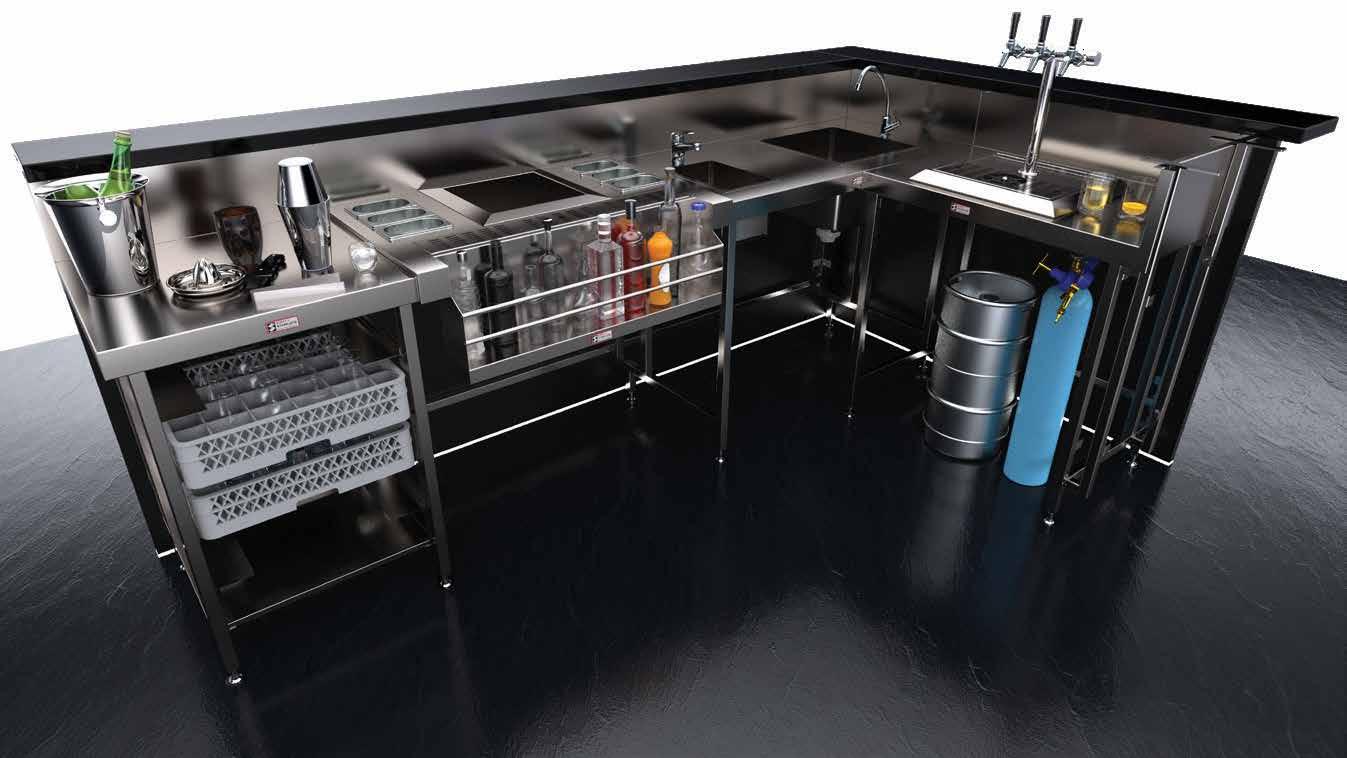






This amendment formed part of the CL Act 1 and commenced on 15 December 2023.
This amendment, known as the “closing the labour hire loophole” was aimed at addressing issues arising (mainly) in the mining sector but will have an impact across a variety of industries which utilise labour hire workers.
The Fair Work Commission has been given the power to make a regulated labour hire arrangement order if it is satisfied that:
(a) the employer supplies employees, directly or indirectly, to perform work for a regulated host (which includes a constitutional corporation); and
(b) an enterprise agreement (or various other instruments) that applies to the regulated host would apply to the employees if the employees were engaged directly by the regulated host; and
(c) the regulated host is not a small business employer (see section 306E of the FW Act).
The order would require the employer to pay the labour hire worker the same rate of pay as any non-labour hire workers engaged by the employer to perform the same work.
This amendment is unlikely to have a significant impact on the hospitality industry as it does not apply to employers who are covered by and apply a modern award. It will only apply to those employers that apply an enterprise agreement should such employer seek to utilise labour hire employees.



Why so serious?


This amendment formed part of the CL Act 1 and commenced on 15 December 2023.
Section 153(1) of the FW Act was amended to include subjection to family and domestic violence as a protected attribute for the purposes of the general protection’s provisions. An employer must not take adverse action against an employee because they are or may be experiencing family and domestic violence related issues.
This amendment formed part of the CL Act 1 and will not commence until 1 January 2025 at the earliest.
The new section 327A of the FW Act introduces a new criminal offence of wage theft. This new provision covers intentional conduct by an employer that results in a failure by that employer to pay an amount to an employee that the employer was required to pay under the FW Act, a fair work instrument (for example, modern award) or a transitional instrument. These new provisions are not designed to capture genuine mistakes or unintentional conduct, rather just the most severe underpayment matters.
The offence will carry a penalty which may include a period of imprisonment (for an individual) or substantial fines for a body corporate.
Employers may enter into cooperation agreements with, or self report to, the Fair Work Ombudsman which will provide a safe harbour from prosecution while the agreement is in force.
These amendments formed part of the CL Act 2 and will commence on 26 August 2024.
Since 2021, whether an employee is a casual employee (for the purposes of the definition of casual employee in section 15A of the FW Act) has been determined by focusing on the initial offer of employment, not what the employment relationship may become post engagement. The initial offer of employment must be on the basis that there is no firm advance commitment to continuing and indefinite work.
The amendments seek to change the definition in section 15A of the FW Act somewhat by focusing not only on the absence of a firm advance commitment to ongoing and indefinite work but also the ‘real substance, practical reality and true nature’ of the relationship. There are several factors that may be taken into account in assessing whether there is an absence of a firm advance commitment to ongoing and indefinite work, and importantly for the hospitality industry, whether there is a regular pattern of work does not of itself indicate a firm advance commitment.
“Since forming government in 2022, the Albanese Government has made a significant number of changes to the Fair Work Act 2009 (FW Act) and the regulation of employment in Australia more broadly.”
Despite the change to the definition, it is important to note that an employee remains as a casual employee until a specific event occurs which has the result of a change to the employee’s employment status (for example, the employee requests to covert from casual to a full or part time employee).
How the new definition will be applied in practice and whether it will have a significant impact will remain to be seen, however it is likely that the only arrangements that will be impacted will be those that were never really a casual from the beginning.
In due course, the AHA|SA will provide further advice and recommendations to members on how casual employment should be managed prior to the commencement of the new definition.
In good news for members, the casual conversion provisions in division 4A of Part 2-2 of the FW Act will be repealed and replaced with the employee choice provisions. This amendment will remove some, but not all, of the administrative burden that has been placed on employers.
Under the employee choice provisions the employer will no longer be required to offer to convert an employee’s employment status from casual to full or part time, rather the employee will be able to request such conversion if they believe their employment no longer meets the definition of a casual employee. Such request may only be made after certain time periods have been met, and an employer will be able to refuse the request on reasonable business grounds.
The Fair Work Commission will be able to deal with disputes under this new division.
Despite the changes, employers will still be required to provide casual employees with a Casual Employment Information Statement on commencement and on various anniversary dates of the persons employment.
This amendment formed part of the CL Act 2 and will not commence until 26 August 2024.
This amendment was rushed through at the last minute in order for the Government to gain the support of the Greens to the balance of the changes.
While the amendment has been heavily discussed in the media, whether the amendment will have any significant effect from a practical perspective will remain to be seen.
A new section 333M will be inserted into the FW Act which will provide an employee with a right to “refuse to monitor, read or respond to contact, or attempted contact, from an employer (or a third party) outside the employee’s working hours unless that refusal is unreasonable”.
Section 333M of the FW Act will set out a number of factors that may be taken into account when determining whether the contact or attempted is reasonable such as the reason for the contact, whether the employee is compensated for being available outside their ordinary work hours, the employee’s personnel circumstances and the nature of the employees role and level of responsibility.
The Fair Work Commission will be given the power to deal with right to disconnect disputes.
Further amendments have been made to the definition of employee (to deal with the employee/independent contractor distinction), increase to pecuniary penalties for more serious contraventions and union delegates rights amongst others. Please contact the AHA|SA for further information if required.
While members need to be aware of the amendments, the majority of the changes are likely to have little impact on the hospitality industry on a day to day basis. The practical reality of how the change to the definition of casual employee and the right to disconnect provisions will impact members will remain to be seen. Members will be provided with more information on the yet to commence provisions in due course. Please contact the Workplace Relations Team for further information in the meantime.
This article contains information that is of a general nature and is for informational purposes only. This article, and its contents, does not constitute legal advice

STEP 1 : CONTAIN
Once an entity has discovered or suspects that a data breach has occurred, it should immediately take action to limit the breach.
For example, stop the unauthorised practice, recover the records, or shut down the system that was breached. If it is not practical to shut down the system, or if it would result in loss of evidence, then revoke or change computer access privileges or address weaknesses in physical or electronic security.
Addressing the following questions may help you identify strategies to contain a data breach:
• How did the data breach occur?
• Is the personal information still being shared, disclosed, or lost without authorisation?
• Who has access to the personal information?
• What can be done to secure the information, or stop the unauthorised access or disclosure, and reduce the risk of harm to affected individuals?
At this point, an entity may suspect an eligible data breach under the NDB scheme has occurred, which would trigger assessment obligations. Or, the entity may believe the data breach is an eligible data breach, which requires them to notify individuals as soon as practicable.
During this preliminary stage, be careful not to destroy evidence that may be valuable in identifying the cause of the breach, or that would enable the entity to address all risks posed to affected individuals or the entity.
STEP 2 : ASSESS
An assessment of the data breach can help an entity understand the risks posed by a data breach and how these risks can be addressed. It should be conducted as expeditiously as possible.
Gather and evaluate as much information about the data breach as possible. By creating a complete picture of the data breach, an entity can ensure they understand the risk of harm to affected individuals, and identify and take all appropriate steps to limit the impact of a data breach.
This assessment should also assist entities in deciding whether affected individuals must be notified.
In your assessment of a data breach, consider:
• the type or types of personal information involved in the data breach
• the circumstances of the data breach, including its cause and extent
• the nature of the harm to affected individuals, and if this harm can be removed through remedial action. All entities should consider whether remedial action can be taken to reduce any potential harm to individuals. This might also take place during Step 1: Contain, such as by recovering lost information before it is accessed. Entities subject to the NDB scheme are required to conduct an assessment of ‘suspected’ eligible data breaches and take reasonable steps to complete this assessment within 30 days (see Assessing a Suspected Data Breach). Criteria for assessing a data breach, including the risk of harm and remedial action, is explored in identifying Eligible Data Breaches.
Notification can be an important mitigation strategy that has the potential to benefit both the entity and the individuals affected by a data breach. The challenge is to determine when notification is appropriate. Sometimes, notifying individuals can cause undue stress or harm. For example, notifying individuals about a data breach that poses very little or no risk of harm can cause unnecessary anxiety. It can also de-sensitise individuals so that they don’t take a notification seriously, even when there is a real risk of serious harm. Each incident needs to be considered on a case-bycase basis to determine whether breach notification is required.
“Once an entity has discovered or suspects that a data breach has occurred, it should immediately take action to limit the breach.”
• the obligations of the entity under the NDB scheme. Entities are required to notify individuals and the Commissioner about data breaches that are likely to result in serious harm. Part 4 of this guide provides further detail about the NDB scheme’s requirements
• other circumstances in which individuals should be notified. For example, your entity may not have obligations under the NDB scheme, but have processes in place to notify affected individuals in certain circumstances
• how notification should occur, including:
• what information is provided in the notification
• how the notification will be provided to individuals
• who is responsible for notifying individuals and creating the notification.
• who else other than affected individuals (and the Commissioner if the notification obligations of the NDB scheme apply) should be notified where a law enforcement agency is investigating the breach, it may be appropriate to consult the investigating agency before making details of the breach public
• whether the incident triggers reporting obligations to other entities.
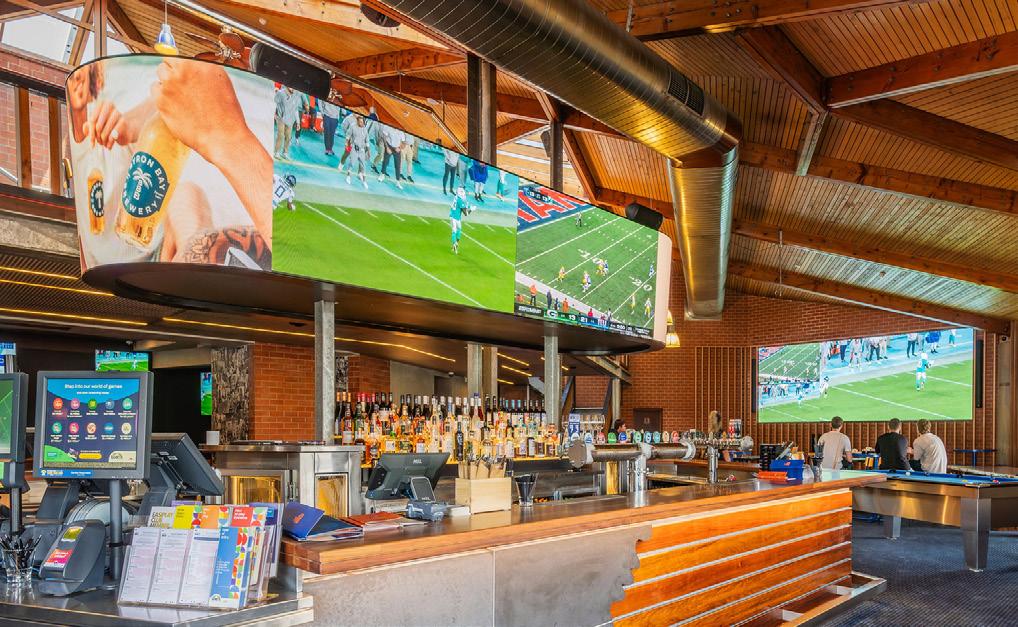


Effective data breach response is about reducing or removing harm to affected individuals, while protecting the interests of your organisation or agency. Notification has the practical benefit of providing individuals with the opportunity to take steps to protect their personal information following a data breach, such as by changing account passwords or being alert to possible scams resulting from the breach. It is important that staff are capable of engaging with individuals who have been affected by a data breach with sensitivity and compassion, in order not to exacerbate or cause further harm. Notification can also help build trust in an entity, by demonstrating that privacy protection is taken seriously.
Once steps 1 to 3 have been completed, an entity should review and learn from the data breach incident to improve its personal information handling practices. This might involve:
• a security review including a root cause analysis of the data breach
• a prevention plan to prevent similar incidents in future
• audits to ensure the prevention plan is implemented
• a review of policies and procedures and changes to reflect the lessons learned from the review
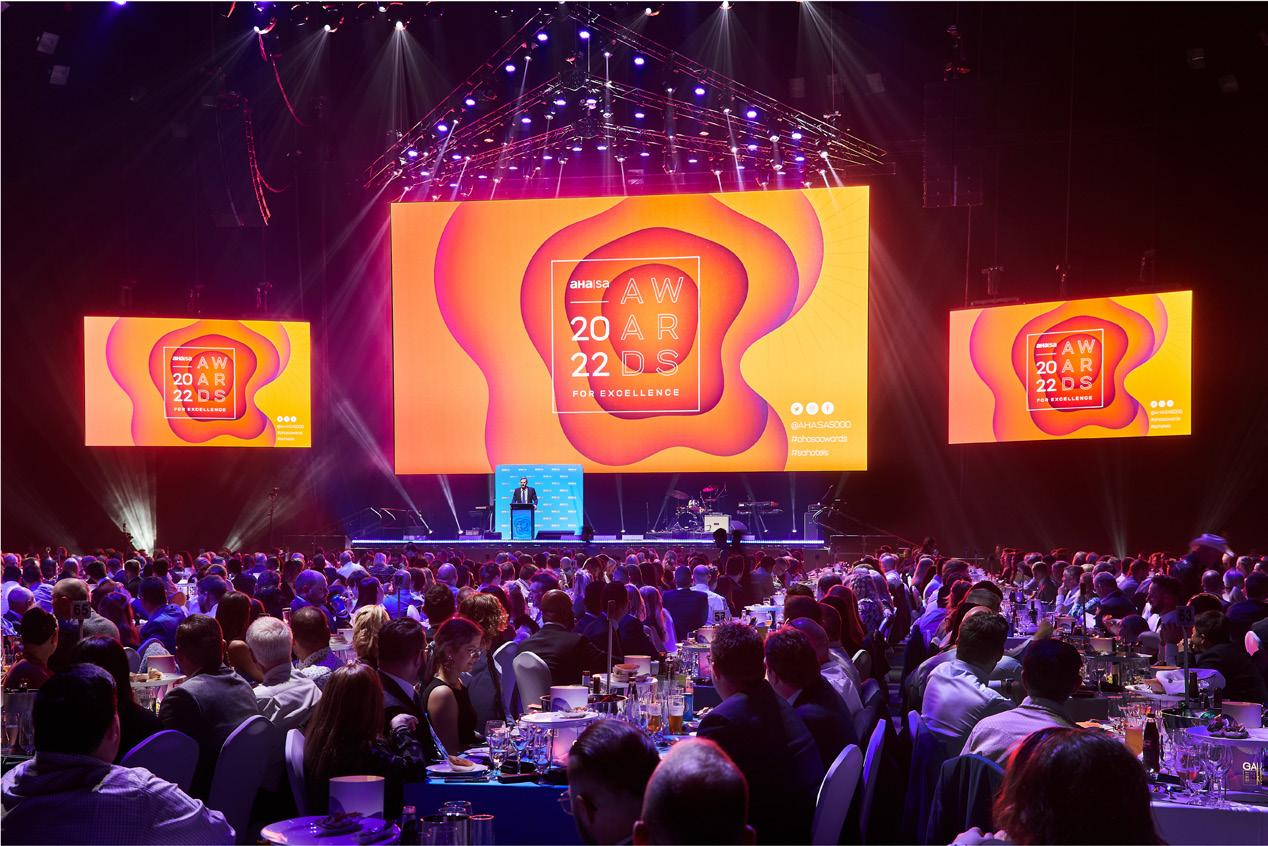


“Effective data breach response is about reducing or removing harm to affected individuals , while protecting the interests of your organisation or agency.”
• changes to employee selection and training practices
• a review of service delivery partners that were involved in the breach.
In reviewing information management and data breach response, an entity can refer to the OAIC’s Guide to Securing Personal Information.10
When reviewing a data breach incident, it is important to use the lessons learned to strengthen the entity’s personal information security and handling practices, and to reduce the chance of reoccurrence. A data breach should be considered alongside any similar
breaches that have occurred in the past, which could indicate a systemic issue with policies or procedures.
If any updates are made following a review, staff should be trained in any changes to relevant policies and procedures to ensure a quick response to a data breach.
Source: oaic.gov.au
Endnotes
10 See Guide to Securing Personal Information, OAIC website https://www.oaic.gov.au.
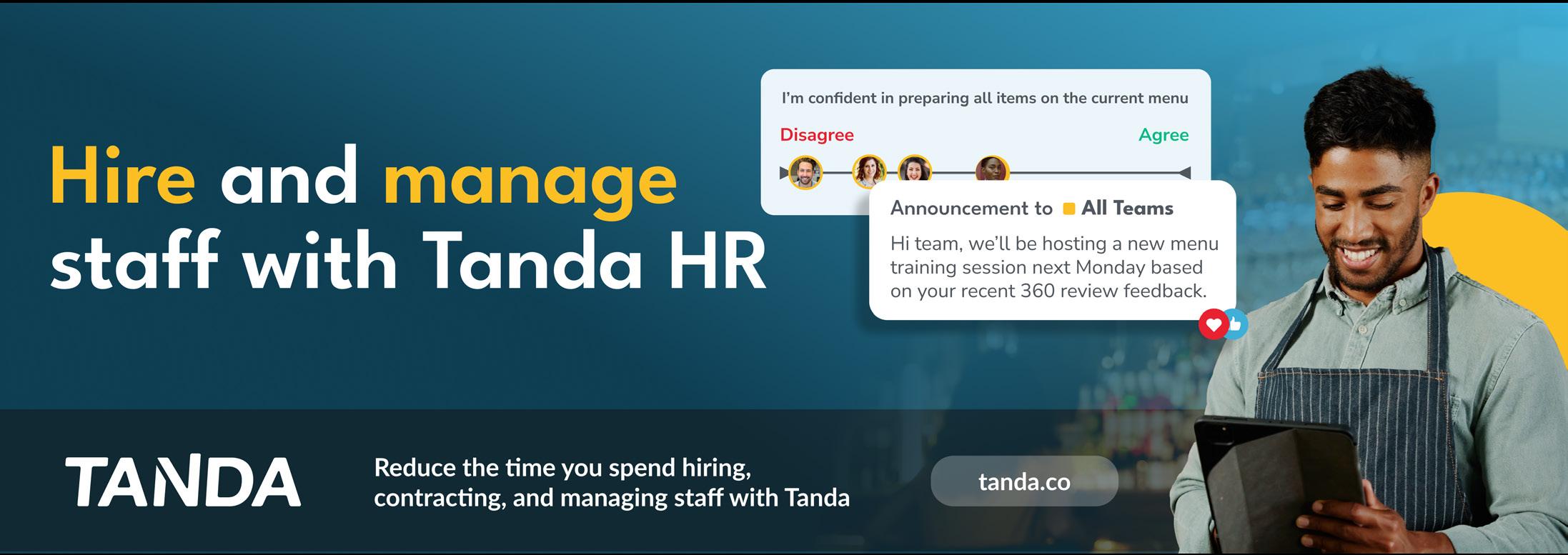
ACCOUNTANCY SERVICES
Bentleys SA 8372 7900
Perks Accountants & Wealth Advisers
08 8273 9300
Winnall & Co. 8379 3159
ARCHITECTS & INTERIOR DESIGNERS
Mister Lincoln 0402 777 326
Studio Nine Architects 8132 3999
ART & FRAMING
Art Images Gallery 8363 0806
ATMS
Banktech 0408 462 321
Cashzone 1300 305 600
Next Payments 1300 659 918
AUDIO VISUAL
Big Screen Video 1300 244 727
Novatech Creative Event Technology
8352 0300
BACKGROUND MUSIC
Foxtel Music 1300 148 729
Moov Music 1300 139 913
Zoo Business Media 07 5587 7222
BANKING & FINANCE
Bank SA 0403 603 018
Perks Accountants & Wealth Advisers
08 8273 9300
BEVERAGE GASES
BOC Limited 0424 647 568
Supagas 8252 7472
BEVERAGES
Accolade Wines 8392 2238
Australian Liquor Marketers 8405 7744
Billsons 03 57281304
Campari Group 02 9478 2727
Carlton & United Breweries 13 BEER (13 2337)
Coca-Cola Europacific Partners 8416 9547
Coopers Brewery 8440 1800
CUB Premium Beverages 8416 7819
Diageo Australia 0401 120 872
Empire Liquor 8371 0088
Lion 8354 8888
Liquor Marketing Group 8416 7575
Oatley Fine Wine Merchants 1800 628 539
Options Craft Liquor Merchants 8346 9111
Pernod Ricard Australia 8208 2400
Samuel Smith & Son 8112 4200
Southtrade International 0410 449 720
Treasury Wine Estates 8301 5400
BOOKKEEPING
Perks Accountants & Wealth Advisers 08 8273 9300
Winnall & Co. 8379 3159
CASH HANDLING / TERMINALS
Banktech 0408 462 321
BK Electronics 0431 509 409
Cardtronics 03 9574 4878
Coms Systems 0408 462 321
Consillion 1800 500 994
GBay/Aruze Gaming 0424 700 888
Next Payments 1300 659 918
CLEANING & HYGIENE SUPPLIES
Bunnings Group 0435 630 660
Bunzl 08 8245 6222
CLEANING COMPANIES
A Cleaner World 0426 887 364
COFFEE SUPPLIERS
Grinders Coffee 1300 476 377
COMPUTER & IT SERVICES
Boylen 8233 9433
Compnow 8133 8000
DEFIBRILLATORS
AED Authority 03 8710 8666
Alsco 8346 1391
St John 1300 78 5646
ENERGY & SOLAR SOLUTIONS
Class A Energy Solutions 8391 4853
Power Maintenance Group 1300 700 500
Trans Tasman Energy 1300 118 834
EQUIPMENT/SUPPLIES/HARDWARE
Bunnings Group 0435 630 660
Bunzl 08 8245 6222
Mr Wet Wall 1800 938 925
FACIAL RECOGNITION TECHNOLOGY
COMS Systems 1800 324 918
Vix Vision 0400 310 326
FINANCIAL PLANNING
Perks Accountants & Wealth Advisers
08 8273 9300
Winnall & Co. 8379 3159
FIRST AID
Alsco 8346 1391
St John 1300 360 455
FOOD SAFETY
Think ST Solutions 0422 285 720
FOOD SERVICES
Bidfood 0427 099 558
Galipo Foods 8168 2000
PFD Foodservice 8114 2300
Thomas Foods 8162 8400
FURNISHINGS
Concept Collections 1300 269 800
Mister Lincoln 0402 777 326
GAMBLING SERVICES
GFR Pro 0408 186 540
SA Lotteries 132 315
UBET 8354 7300
GAMING ANALYSIS
Independant Gaming Analysis 8376 6966
Winnall & Co 8379 3159
GAMING FLOAT RECONCILIATION
GBay/Aruze Gaming 0424 700 888
GFR Pro 0408 186 540
GAMING LOYALTY
Bluize 1300 557 587
GAMING MACHINE SERVICES
Ainsworth Game Technology 0409 171 616
Aristocrat Technologies Australia 8273 9900
Coms Systems 0409 283 066
GBay/Aruze Gaming 0424 700 888
IGT 8231 8430
Independant Gaming Analysis 8376 6966
Konami Australia Pty Ltd 0409 047 899
MAX 8275 9700
Light & Wonder 0400 002 229
Statewide Gaming 0448 076 144
GIFT CARDS
The Card Network 1300 375 346
HEALTH INSURANCE
Bupa 1300 662 074 (#2146982)
HOTEL BROKERS
JLL 8233 8890
Langfords Hotel Brokers 0410 605 224
McGees Property Hotel Brokers 8414 7800
HOTEL MANAGEMENT
H&L Australia Pty Ltd 1800 778 340
HOTEL MARKETING
Digital Marketing AOK 1300 658 543
INFORMATION SYSTEMS/SITE PREP
Max Systems 8275 9700
INSURANCE
Aon Risk Solutions 8301 1111
KITCHEN & BAR EQUIPMENT
Bunnings Group 0435 630 660
Bunzl 08 8245 6222
Stoddart Food Service Equipment
0468 923 320
LOTTERIES
SA Lotteries 13 18 68
LEGAL SERVICES
Eckermann Lawyers 8235 3990
Piper Alderman Lawyers 8205 3318
Ryan & Co Solicitors 0421 595 815
Wallmans Lawyers 8235 3018
LINEN & UNIFORM SERVICES
Alsco 1300 659 892
ORTC Clothing Co 0422 515 213
Alsco 8346 1391
MEDIA
FIVEaa 8419 1395
Foxtel 1300 138 898
Solstice Media 8224 1600
MIGRATION
Migration Solutions 8210 9800
ONHOLD/MESSAGING
1800 ON HOLD 8125 9370
PAYROLL & HR RESOURCES
Employment Hero 0415 769 186
Perks Accountants & Wealth Advisers
08 8273 9300
Tanda 1300 859 117
Winnall & Co. 8379 3159
POS SYSTEMS
Bepoz 1300 023 769
Bluize 1300 557 587
H&L Australia Pty Ltd 1800 778 340
PROPERTY VALUATIONS
JLL 8233 8890
Knight Frank Valuations & Advisory 8233 5222
RETAIL LIQUOR MARKETING
Australian Liquor Marketers 8405 7744
Liquor Marketing Group 8416 7575
SIGNAGE & PROMOTIONAL ITEMS
The Banner Crew 8240 0242
SPORTS & ENTERTAINMENT MEDIA
Foxtel 1300 790 182
STAFF TRAINING & RECRUITMENT
Adelaide Institute of Hospitality 8338 1492
Alliance College 1300 665 065
The Kingsmen 0410 416 655
Maxima 8340 7766
Perks Accountants & Wealth Advisers
08 8273 9300
St John 1300 360 455
SUPERANNUATION
HostPlus 0418 327 607
WEBSITES
Boylen 8233 9433



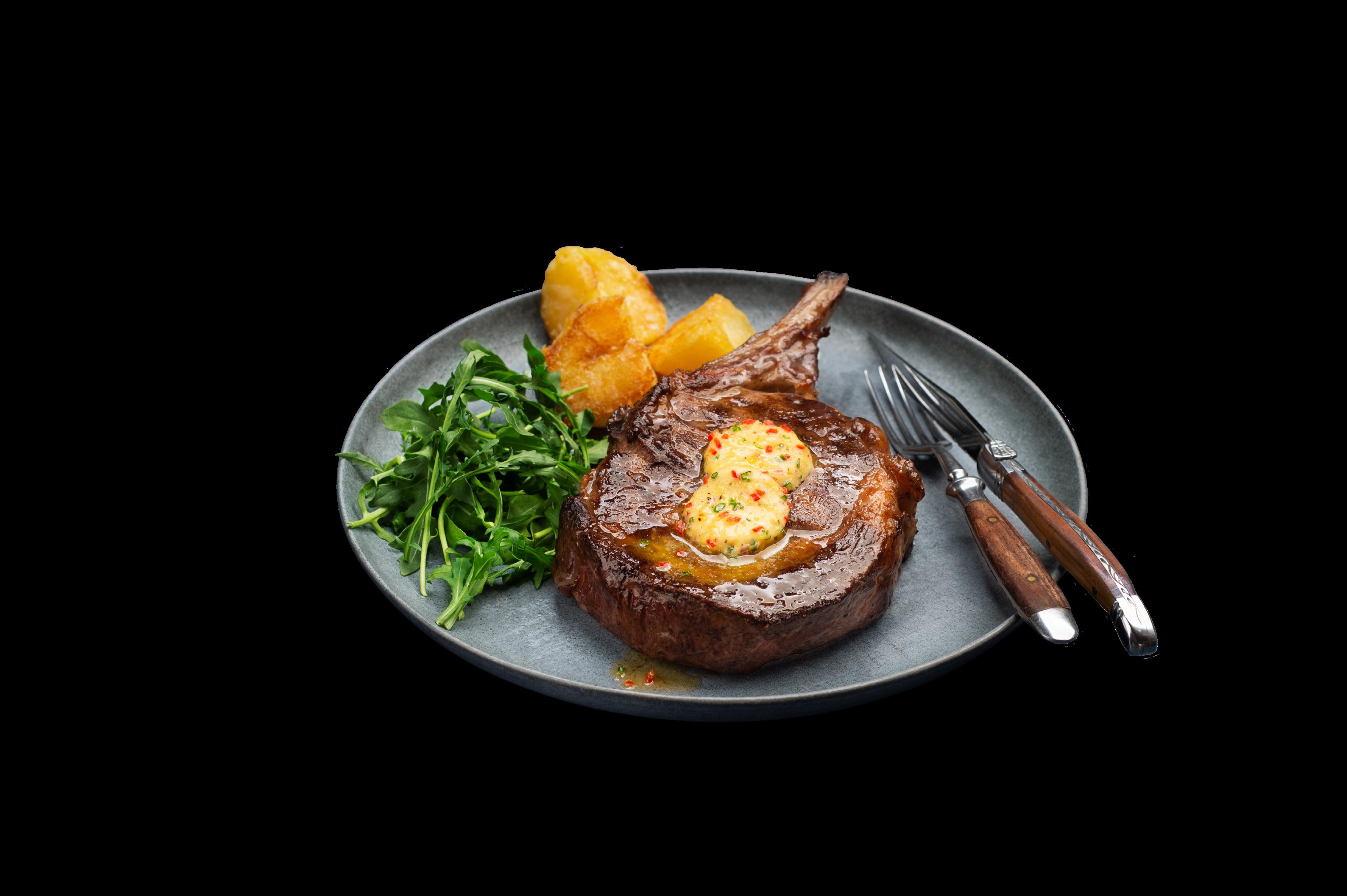










AED Authority
Ainsworth Game Technology
Australian Liquor Marketers
BankSA
Big Screen Video
Bluize
Boylen
Campari Group
Digital Marketing AOK
Empire Liquor
Employment Hero
Foxtel
1800 ON HOLD
Adelaide Institute of Hospitality
Alliance College
Alsco
Banktech
Bentleys Accountants
Billsons
BK Electronics
BOC Limited
Bunnings Group
Bunzl
T
4TH
60





Konami Australia Pty Ltd
Light & Wonder
Liquor Marketing Group
Novatech Creative Event


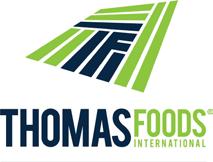
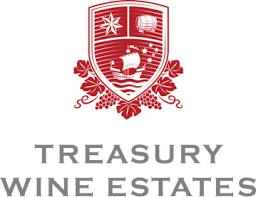
Technology
Oatley Fine Wine Merchants
Options Craft Liquor Merchants
Samuel Smith & Son
Stoddart Food Equipment
Tanda
Cashzone
Class A Energy Solutions
Compnow
COMS Systems
Concept Collections
Consillion
Eckermann Lawyers
GBay/Aruze Gaming
Independant Gaming Analysis JLL
Knight Frank Valuations &
Advisory SA
Langfords Hotel Brokers
McGees Property Hotel Brokers
Mister Lincoln
Next Payments
ORTC Clothing Co
Perks Accountants & Wealth
Piper Alderman Lawyers
Power Maintenance Group
Ryan & Co. Solicitors
Solstice Media
Statewide Gaming
St John
Studio Nine Architects
Supagas
The Banner Crew
The Kingsmen
Trans Tasman Energy Group
Vix Vision
Wallmans Lawyers
Winnall & Co A
Art Images Gallery Bupa
The Card Network
Maxima
Migration Solutions
Southtrade International
Think ST Solutions

GAMING CARE works with all South Australian Hotels with gaming machines to reduce the harm caused by problem gambling.
Providing the hotel industry with the capacity to respond to community concerns related to the harm associated with gambling by contributing to early intervention and support for problem gamblers and their families.
Minimising the harm caused by problem gambling behaviour by fostering a compliant and proactive industry that works with regulators, gambling help services and gaming patrons to minimise harm caused by gambling.
Assisting licensees and hotel staff with their compliance obligations, and supporting venue staff through education and training regarding the recognition of problem gambling indicators and assisting in accurately documenting patron behaviour.
Providing licensees and hotel staff with the confidence and skills required to engage directly with patrons who are showing indicators of potential problem gambling, enabling them to intervene early and refer the patron to a gambling help service, or other support options if required.
Contact your local Gaming Care Officer, or our Office, for information on how Gaming Care can assist your venue.

For any assistance or support please contact your local Gaming Care Officer, or our office for information on how Gaming Care can assist your venue.
Olary
Seed
CONTACT
OFFICE
Level 4, 60 Hindmarsh
Square, Adelaide SA 5000
POSTAL
PO Box 3092, Rundle Mall SA 5000
P (08) 8232 4525
P 1800 814 525 Toll Free
F (08) 8232 4979
E information@ahasa.asn.au W www.ahasa.asn.au
EXECUTIVE COUNCIL
DAVID BASHEER President
MATTHEW BINNS Vice President
LUKE DONALDSON Deputy Vice President
COUNCIL
BRAD BARREAU
ANDREW BULLOCK
SIMONE DOUGLAS
TREVOR EVANS
JASON FAHEY
TRENT FAHEY
SAM M c INNES Secretary Treasurer
MATTHEW BRIEN Executive Council
ANNA HURLEY Executive Council
COREY FARMER
ELISE FASSINA
JAMES FRANZON
TONY FRANZON
JOHN GIANNITTO
TOM HANNAH
ANDREW KEMP Executive Council MATT ROGERS Executive Council
PETER JOHNSON
JASON KELLY
GUY MATTHEWS
KAREN MILESI
ANDREW PLUSH
DARREN STEELE
Views expressed in Hotel SA are not necessarily those of the AHA|SA or the publisher and neither can accept, and therefore disclaims any liability, to any party for loss or damage caused by errors or omissions resulting from negligence, accident or any other cause. We do not endorse any advertising materials, services offered within advertisements or products, special offers or goods promoted therein.
PUBLISHER
3/288 Glen Osmond Road, Fullarton SA 5063 P (08) 8233 9433 W www.boylen.com.au
TIM BOYLEN Managing Director tboylen@boylen.com.au
ANNA MOELLER CEO
OWEN WEBB Deputy CEO
ALISA WENZEL Financial Officer
KATHERINE TAYLOR
Accommodation Australia (SA) & Communications
NATARSHA STEVENSON Manager - Policy & Industry Affairs
SARAH LEGOE Senior Advisor - Workplace Relations, Liquor Licensing & Gaming
JAMIE RICHARDSON Advertising sales@boylen.com.au

GARY COPPOLA Legal and Advocacy
DIDIER VOLLERIN Liquor Licensing & Gaming Advisor
SCOTT VAUGHAN Membership & Business Services
LUCY RANDALL Events & Partnerships
LIZ TURLEY Training Coordinator
BELINDA RICHARD Executive Assistant
PATRYCJA WHIPP Studio Manager/Graphic Designer